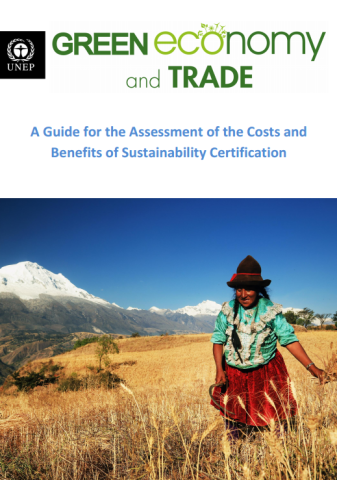
A variety of sustainability standards has been developed in recent years, with the aim to improve the environmental quality, social inclusiveness and economic performance of production and trade. This wave has been motivated by an increased awareness of consumers around the world about the impacts of their purchasing decisions, with certification being a key signalling mechanism for consumers that want to buy more responsibly. Driven by this demand and increased awareness, producers and other actors in the value chain are increasingly choosing to adopt standards that verify and certify the compliance with sustainability criteria.
Starting from these considerations, the study A Guide for the Assessment of the Costs and Benefits of Sustainability Certification seeks to provide guidance on how to approach an assessment of the broader costs and benefits deriving from sustainability certification. Since the specifics of the CBA vary greatly depending on each particular case, the industry, and the focus of the analysis, this paper has the objective to provide a general introduction to the CBA methodology and to provide a toolkit that can be adapted to a wide array of different cases. This study is not intended to provide a full-fledged technical guide on the actual implementation of a CBA, but rather, to provide a diverse set of tools that can be adapted to the specific focus of the question the user is trying to answer. It will guide the user through the most relevant steps of the analysis, and provide further resources to deepen the technical knowledge to implement a CBA.
